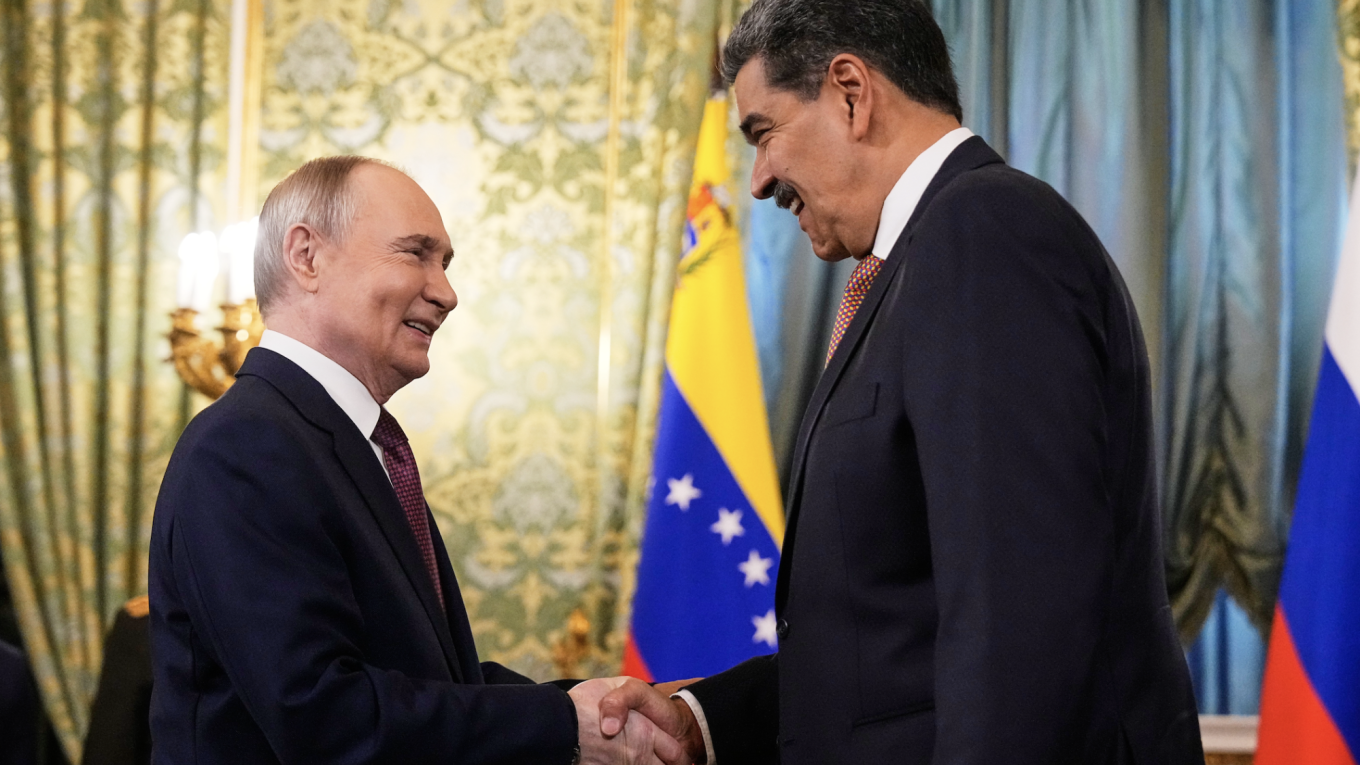In a move that signals a significant escalation of geopolitical tensions in the Americas, reports indicate that Venezuelan President Nicolás Maduro has formally requested military assistance from Russian President Vladimir Putin. This request comes as the United States concentrates naval and air forces in the Caribbean Sea, creating a volatile standoff that echoes Cold War proxy dynamics.
St. Petersburg, Russia – The political crisis in Venezuela has taken a sharp international turn, with global news agencies reporting that the government of Nicolás Maduro has reached out to its key ally, Russia, for direct military support. This development occurs against a backdrop of large-scale military exercises conducted by the United States in the region, which Washington describes as routine but Caracas condemns as a direct threat.
A Request for Support in the Face of “Imperial Aggression”
While the specific details of the requested assistance remain confidential, regional analysts suggest it could range from advanced military hardware and technical advisors to a more symbolic show of force. For years, Russia has been a crucial economic and military partner for the Maduro government, providing diplomatic cover at the UN and investing heavily in Venezuela’s oil sector.
Maduro’s administration has consistently framed the longstanding U.S. sanctions and political pressure as a form of “economic war” and “imperialist aggression” aimed at forcing a change in government. The recent U.S. military movements are portrayed by Caracas as a prelude to a potential intervention. Seeking support from Moscow is seen as a strategic move to deter any direct action by strengthening Venezuela’s defensive, and potentially offensive, capabilities.
Washington’s Stance and Regional Implications
The United States, along with dozens of other nations, recognizes opposition figure Juan Guaidó as the legitimate interim president of Venezuela. The U.S. government has stated that its military activities in the Caribbean are focused on counter-narcotics operations and are standard procedure. However, officials have also repeatedly stated that “all options are on the table” regarding the situation in Venezuela.
For many observers in Africa and the Global South, this escalating situation is a stark reminder of how internal political conflicts can quickly become internationalized, drawing in major world powers. The potential for a proxy conflict between the U.S. and Russia in Latin America raises concerns about regional destabilization and the broader principles of national sovereignty.
A Pan-African Perspective: Sovereignty and Non-Interference
This crisis resonates deeply with post-colonial narratives familiar across the African continent. The principle of non-interference in the internal affairs of sovereign states is a cornerstone of the African Union. The situation in Venezuela presents a complex dilemma: the right of a people to self-determination versus the destructive impact of external powers fuelling a conflict.
As the international community watches, the question remains whether this request will lead to a tangible Russian military presence in the Americas, and how the United States and its regional allies will respond. The outcome of this standoff will not only determine the future of Venezuela but could also set a significant precedent for how geopolitical power struggles are waged in the 21st century.

Leave a Reply